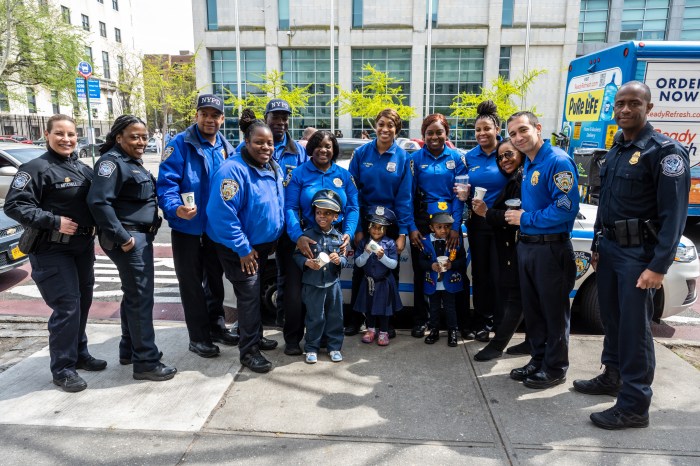On most cool, rainy days throughout the summer, city sprinklers run continuously, pouring thousands of gallons of water — and money — down the drain.
But a joint project between the Department of Environmental Protection (DEP) and the Department of Parks and Recreation is looking to put an end to this water waste through timed spray showers at city parks.
Timers installed on spray showers at two Queens playgrounds, Glendale and Maple, will save more than 5,000 gallons of water a day at each. An activation button was placed next to the showers at the parks, providing two minutes of water. If kids are still playing when the water stops, someone just needs to press the button again to continue the water.
“We’re working together to make a cleaner and greener and healthier city that also happens to save money,” said Adrian Benepe, Parks Department commissioner. “As a world community we have to be much more responsible about managing our water resources.”
The new initiative — part of the Water for the Future program — was announced at Glendale Playground on Thursday, August 9. The DEP’s program aims to reduce the city’s water consumption by five percent.
Before the timer was installed, showers ran nonstop, using about 7,000 gallons of water per day. The DEP expects the new plan will save about 80 percent (5,600 gallons) of the wasted water each day. Over the next year, 23 more will be installed, and by 2017 more than 400 will be in place in the five boroughs — saving 1.5 million gallons of water daily.
“NYC water is one of the city’s most precious resources, and it’s important that we conserve it wherever we can while also enhancing opportunities for New Yorkers to enjoy water outdoors,” said Carter Strickland, commissioner of the DEP.
Shifa Lalani, 9, of Middle Village, one of the dozens of kids from the Lost Battalion Hall enjoying the spray showers at Glendale Park, agreed conserving water was vital.
“People need water to drink and to survive,” she said.































